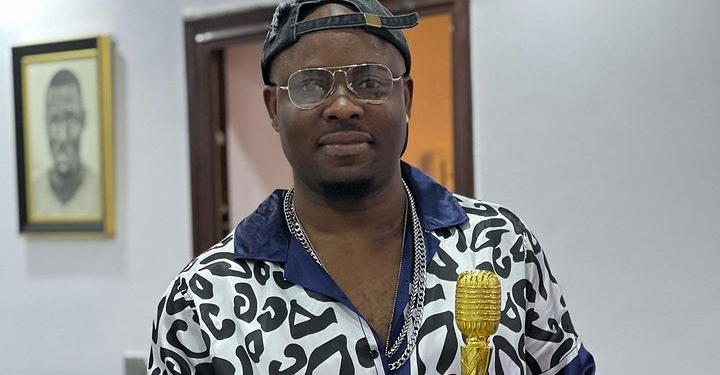Now Reading: Lege Miami Reacts to Leaked Soapy Tape: “It’s AI, Not Me”
-
01
Lege Miami Reacts to Leaked Soapy Tape: “It’s AI, Not Me”
Lege Miami Reacts to Leaked Soapy Tape: “It’s AI, Not Me”

Controversy erupted online this morning as Nollywood actor, social media sensation, and matchmaking king, Kehinde Badmus, popularly known as Lege Miami, addressed a leaked video allegedly showing him performing the infamous “soapy” dance. In a strongly-worded response, Lege claimed the footage was AI-generated, warning that those behind the video’s release would face serious legal consequences.
“That Video Is Not Me” — Lege Cries Out
In a video posted to his verified Instagram handle, Lege Miami dismissed the viral clip as fake and computer-generated. “That video is not me,” he said. “They used AI to create something that never happened. Anyone involved will be arrested. They better go and get a lawyer.”
Lege further revealed that unknown individuals had reached out to him as far back as three years ago, claiming to have damaging footage of him. According to him, he ignored the threats, believing the matter had passed. However, the viral release of the alleged “soapy” clip has now brought the issue to the forefront.
WATCH THE VIDEO
View this post on Instagram
Legal Threats and Warnings

LEGE MIAMI
Visibly angry in his response, Lege Miami vowed to pursue justice and identify those behind the video leak. “I’ve already told my lawyers. Everybody that has a hand in this from the creator to the sharer — will be held responsible,” he said.
He also accused the perpetrators of trying to dent his image and affect his career. “You want to drag me down, but God pass una,” he said in Yoruba.
Read Also : Sikiru Ayinde Barrister Never Wanted Hate Among Fuji Musicians — Late Icon’s PA Finally Breaks Silence
Social Media Reacts
The incident has sparked mixed reactions across social platforms like X (formerly Twitter), Instagram, and TikTok. While some users laughed off the situation, others criticized the unethical use of AI in spreading false content.
“Even AI don dey enter Nigeria wahala,” one user posted. Another said, “If it’s not him, then those responsible should really be dealt with. It’s getting out of hand.”
AI and the Growing Risk of Deepfakes in Nigeria
Lege Miami’s experience isn’t an isolated one. Experts warn that AI-generated deepfake videos are on the rise in Nigeria’s digital space, often used to spread misinformation or defame public figures.
According to a 2024 report by TechCabal, Nigeria saw a 42% spike in AI-modified content within the last year, mostly targeting celebrities and politicians.
Conclusion: A Warning from Lege

In closing, Lege warned all those involved in the scandal to prepare for legal consequences. “You think it’s cruise, but I will show you pepper. Lawyer up,” he said with intensity.
As the scandal unfolds, many Nigerians await further updates on what could become a high-profile legal case in the country’s fight against AI-fueled misinformation.





